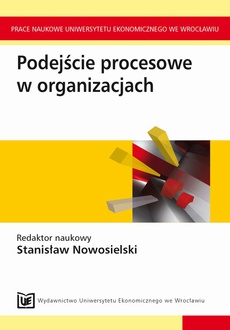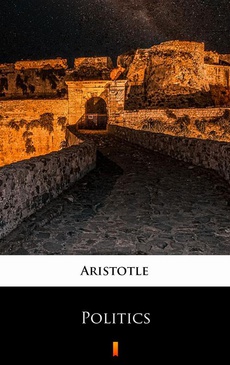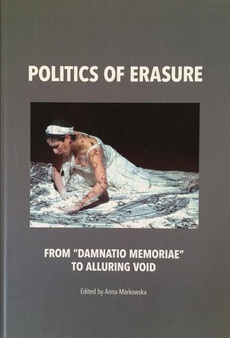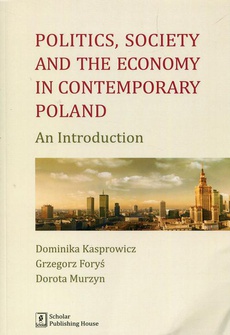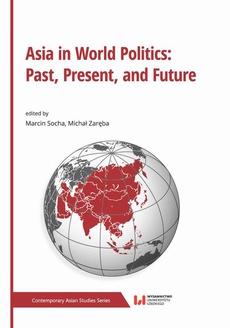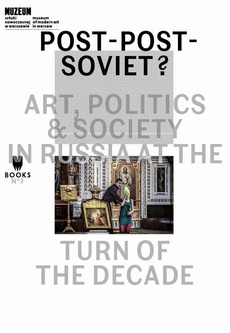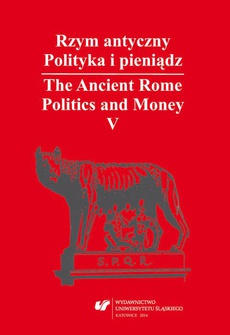POLECAMY
Politics and Society in the Islamic World
Polityka i społeczeństwo w świecie islamu
Redakcja:
Wydawca:
Format:
ibuk
As we prepare this book for publication, the enthusiasm for the «Arab Spring» has proved entirely misguided. The situation across the Middle East is now more dangerous than it has been for half a century. Tunisia’s revolution sparked a string of regional uprisings which ousted the rulers of Egypt, Libya and Yemen, leading to chaos in Egypt and anarchy in Libya, as well as to conflict in Syria. Several major world powers have become embroiled in the latter and the conflict evolved into full scale war.
Although Bashar al-Assad of Syria still has control over some territories due to his secret police and the armed forces, he cannot, and probably has no interest in stopping the expansion of the Islamic State of Iraq and Syria (ISIS) - a Salafi militant organization born in 2014 in the political vacuum in Iraq left by the fall of Saddam Hussein.
With thousands of migrants fleeing conflict-torn countries of the Middle East, Europe is currently struggling to cope with a massive refugee influx, although the vast majority of the refugees have remained in the region, especially in the camps in Turkey, Lebanon and Jordan. Some European countries, including Germany and Sweden, opened their gates to refugees, while others (i. e. Poland and Hungary) refused to take the migrants.
Undoubtedly, the migrant crisis has been feeding xenophobia and political populism - anti-immigrant sentiment was one of the reasons why the British voted to leave the European Union in referendum held in June, 2016.
| Rok wydania | 2016 |
|---|---|
| Liczba stron | 312 |
| Kategoria | Publikacje darmowe |
| Wydawca | Wydawnictwo Uniwersytetu Łódzkiego |
| ISBN-13 | 978-83-8088-362-8 |
| Numer wydania | 1 |
| Język publikacji | polski |
| Informacja o sprzedawcy | ePWN sp. z o.o. |
Ciekawe propozycje
Spis treści
| Introduction | 7 |
| MAGDALENA LEWICKA, Ḥurriyya versus liberté. Hayr ad-Dīn at-Tūnusī’s idea of freedom based on Al-Muqaddima to Aqwam al-masālik fī ma’rifat aḥwāl al-mamālik | 15 |
| VLADIMIR LEBEDEV, Деятельность партии радикальных мусульманских организаций в Османской империи накануне Первой мировой войны: по документам Особого отдела Департамента | 30 |
| ROSWITHA BADRY, How to succeed in overcoming a bad reputation? The efforts of Nusayri Alawites in the 20th century to improve their image | 38 |
| SYLWIA SURDYKOWSKA, Polityka zagraniczna Stanów Zjednoczonych Ameryki w języku perskim | 51 |
| SVETLANA TCHERVONNAYA, Мусульманский (татарский) Крым в условиях российской оккупации (2014–2015) | 66 |
| ANNA KUCHARSKA, Autorytaryzm przy udziale wpływów z energetycznych zasobów naturalnych – ujęcie teoretyczne i praktyczne na przykładzie państw regionu Morza Kaspijskiego | 80 |
| MOUSSA FATAHINE, Political discourse in the Muslim world and the reality of the assets and the effects of globalization Algeria model | 98 |
| ANAS GHAZI ENAYAH, The impact of the revelation texts on the attitude of Islamic parties toward the Arab Spring | 108 |
| EDGAR ELBAKYAN, Understanding Turkish Middle East Policy: The Case of Turkey-Egypt Relations in the Context of the Arab Spring | 125 |
| MARCIN STYSZYŃSKI, Strategia komunikacji i perswazji organizacji Państwo Islamskie | 138 |
| MAREK M. DZIEKAN, Tamim al-Barghusi – Arabian Idol | 153 |
| MAGDALENA LEWICKA, “We want to show the world that women can do everything” – Tawakkul Karman | 163 |
| JOACHIM KOLB, Organic Intellectuals in the Gulf – ʿAbd al-Ḫāliq Abdullāh’s Autobiography and the Emergence of a Gulf Intelligentsia | 173 |
| MARZENA GODZIŃSKA, Alkohol w obrzędowości i życiu codziennym w Turcji – alewici, sunnici i turecki rząd | 184 |
| MYKOLA VASKIV, Рецепция Турции и турецкой культуры в украинской литературе 1920–30-х годов | 198 |
| MARINA YANOVA, Некоторые аспекты формирования мусульманской культуры населения Ближнего Востока и народов Северного Кавказа России и современные перспективы развития историографии | 212 |
| MAGDALENA RODZIEWICZ, From Compulsory Unveiling (kashf-e hejab) to Compulsory Veiling (hejab-e ejbari). Hejab in the Iranian Perspective | 228 |
| KAMILA JUNIK-ŁUNIEWSKA, Nurty mistyczne a radykalny islam: sytuacja sufich w Pakistanie | 242 |
| AGNIESZKA KUCZKIEWICZ-FRAŚ, Kim są muzułmańscy dalici? Uwagi na temat kastowości wśród muzułmanów w Azji Południowej | 253 |
| RENATA CZEKALSKA, Immam-e-Hind Śri Ram, czyli o wybranych hinduskich tradycjach wśród muzułmanów indyjskich | 266 |
| BROOKE THOMPSON, Legal accommodation for Sharia personal law in Australia: lessons from India, Canada and the United Kingdom | 276 |
| ALEKSANDRA M. RÓŻALSKA, Obraz islamu w amerykańskich serialach telewizyjnych po 11 września 2001 roku | 289 |
| MAGDALENA KUBAREK, Literatura muzułmańska w Europie. Zarys problematyki | 299 |
| About Authors | 311 |











